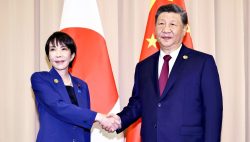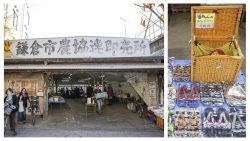13:36 JST, December 25, 2020
Japan’s high-quality agricultural products, the result of repeated improvements in their varieties and breeds, constitute valuable intellectual property. It is vital to protect them and lead to vitalization of domestic agriculture.
A bill to revise the plant variety protection and seed law has been approved to prevent seeds and seedlings of brand-name agricultural products developed in Japan from being taken overseas.
The law concerns intellectual property rights for new varieties. Under the current law, developers who register new varieties are granted up to 25 years of plant breeder’s rights. In cases of fruit-bearing and other trees, the duration of the rights shall be up to 30 years. The law states that parties other than the rights-holders are not allowed to produce or sell them without permission.
However, the current law does not regulate the export of seeds and seedlings that have become commercially available. When developers register new varieties, the revised law allows them to limit their growing areas to those within Japan. Violators are subject to criminal punishment.
The government has made expanding exports of agricultural, forestry and fishery products one of the pillars of its growth strategy. As an outflow of brand-name farm products could damage exports, it is only natural for the government to step up preventive measures.
The “Shine Muscat,” a high-quality grape that a state organization took 33 years to develop, has gained popularity because it has no seeds and the peel itself can be eaten, making it an important export product to Hong Kong and Taiwan.
However, there have been a number of cases in which its young vines have been taken to China and South Korea to be cultivated there for export to Southeast Asia and elsewhere.
It has also been confirmed that “Benihoppe” strawberries and “Beni Shuho” cherries have been taken overseas. The Agriculture, Forestry and Fisheries Ministry estimates there has been a total of up to ¥22 billion in damage in five years due to cases in which Japanese-developed strawberries were taken to South Korea.
The revised law is expected to prevent such damage.
Meanwhile, some domestic farmers are said to be concerned about the revised law. This is because the revised law also aims to restrict farmers’ personal proliferation of seeds and seedlings — the repeated cultivation of registered varieties by using seeds and other products they collect from the varieties they harvest — requiring farmers to obtain permission from those who hold the plant breeder’s rights for registered varieties.
The move is aimed at making it easier for developers to control distribution and closing loopholes in the outflow of high-quality agricultural products. However, fears have been spread online among farmers that they would suffer a greater burden in having to pay the permission fees and they would not be able to freely engage in their personal proliferation of seeds and seedlings.
According to the agriculture ministry, permission fees will be low because most of the major export items are developed by public organizations such as the central and prefectural governments. Registered varieties of vegetables and fruits account for about 10% of the total, and most of the familiar varieties, such as the “Kyoho” grape, are exempt from the regulation.
To make the aims of the revised law widely known, the agriculture ministry needs to thoroughly explain the revision, and to consider measures such as establishing a system to monitor the increase in permission fees.
It will be important to continue improving varieties in order to respond to climate change and insects causing damage to crops. It is hoped that the revised law will motivate developers and strengthen the competitiveness of Japanese agriculture.
— The original Japanese article appeared in The Yomiuri Shimbun on Dec. 25, 2020.
Top Articles in Editorial & Columns
-

Myanmar Will Continue Under Military Rule Even After Election, Ex-Ambassador Maruyama Says in Exclusive Interview
-

40 Million Foreign Visitors to Japan: Urgent Measures Should Be Implemented to Tackle Overtourism
-

Expansion of New NISA: Devise Ways to Build up Household Assets
-

China Criticizes Sanae Takaichi, but China Itself Is to Blame for Worsening Relations with Japan
-

Withdrawal from International Organizations: U.S. Makes High-handed Move that Undermines Multilateral Cooperation
JN ACCESS RANKING
-

Univ. in Japan, Tokyo-Based Startup to Develop Satellite for Disaster Prevention Measures, Bears
-

JAL, ANA Cancel Flights During 3-day Holiday Weekend due to Blizzard
-

China Confirmed to Be Operating Drilling Vessel Near Japan-China Median Line
-

China Eyes Rare Earth Foothold in Malaysia to Maintain Dominance, Counter Japan, U.S.
-

M6.2 Earthquake Hits Japan’s Tottori, Shimane Prefectures; No Tsunami Threat (Update 4)


















